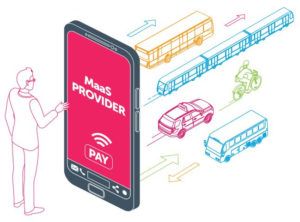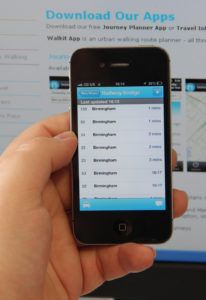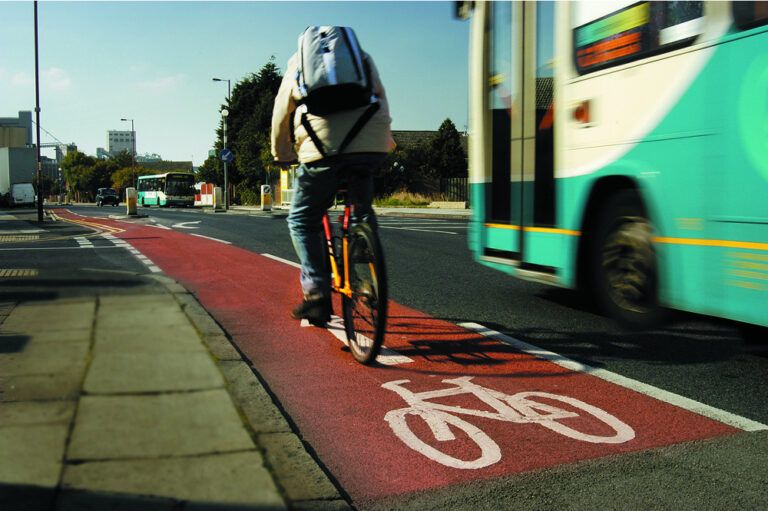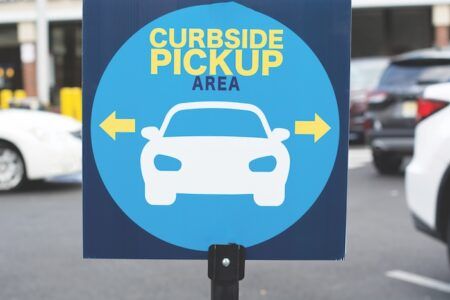In a report published ahead of the autumn political party conferences, the Urban Transport Group (UTG) has set out the challenges to improving transport in the UK’s city regions and the solutions needed to overcome them.
The UTG, which represents the UK’s network of city region transport authorities, has identified four urban transport challenges and four solutions, as well as what the county’s transport authorities need from central government to bring about these changes.
The report, ‘What next for urban transport?’, identifies the following challenges for urban transport:
- Climate change and air quality;
- Inclusive growth;
- Technological change;
- Health and wellbeing.
The report also sets out the four solutions:
- Help people to make more short journeys on foot or by bike;
- Get city regions back on the bus;
- Boost rail capacity;
- Harness the power of technological change.
The UTG notes that in order for these to happen, city regions must:
- Be able to take control of their transport networks, including giving all transport authorities the powers to franchise bus networks, oversee urban rail services, and operate more public transport services directly, where they wish to do so;
- Be given a new funding deal from Government that will: reform bus funding to prevent further decline in patronage; deliver stable, long term, local funding so urban transport networks can be properly maintained and developed in the most cost effective way; ensure the costs of the national concessionary fares scheme are met by national government; and require the NHS to use part of its growing budget to reduce its own transport impacts.
 “As transport authorities we are already investing heavily in maintaining and improving urban transport. However, there is much more that needs to be done if transport is to contribute effectively to meeting the many challenges that city regions face, from the climate crisis to public health challenges associated with a lack of physical activity,” said Stephen Edwards, UTG chair and executive director of South Yorkshire Passenger Transport Executive. “The right policies can help overcome these challenges, such as encouraging more active travel to improve air quality and health outcomes, and boosting the bus to support a host of opportunities for their users, such as access to employment, education and leisure. What we need from Government is to create the conditions for these to happen by handing more power to the places which run their transport networks, and through a new funding deal that is adequate and appropriate for such networks to flourish.”
“As transport authorities we are already investing heavily in maintaining and improving urban transport. However, there is much more that needs to be done if transport is to contribute effectively to meeting the many challenges that city regions face, from the climate crisis to public health challenges associated with a lack of physical activity,” said Stephen Edwards, UTG chair and executive director of South Yorkshire Passenger Transport Executive. “The right policies can help overcome these challenges, such as encouraging more active travel to improve air quality and health outcomes, and boosting the bus to support a host of opportunities for their users, such as access to employment, education and leisure. What we need from Government is to create the conditions for these to happen by handing more power to the places which run their transport networks, and through a new funding deal that is adequate and appropriate for such networks to flourish.”
A recent report from UTG has also considered the options offered by Mobility-as-a-Service (MaaS) models and put forward five tests to help transport authorities ensure that any MaaS offering delivers on urban public policy goals:
- Does it incentivize public transport use?
- Does it help reduce congestion and pollution?
- Is it socially inclusive (including on affordability; accessibly, providing options for those with additional mobility needs)
- Is there a culture of openness and data sharing?
- Does it encourage active lifestyles?
The UTG’s lead board member for smart futures, Vernon Everitt, said, “It is up to each transport authority to decide how big a role they wish to play in determining the evolution of MaaS depending on local circumstances and aspirations.”





